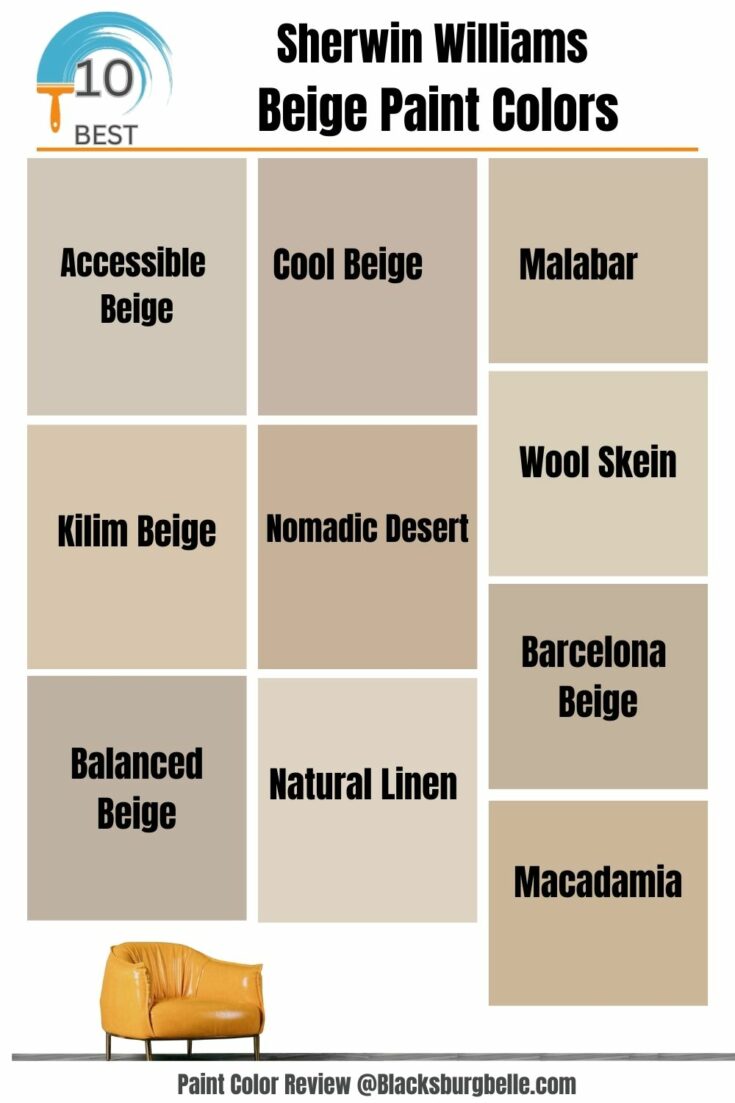
Ever walked into a room and felt instantly calmed, yet invigorated? That's the magic of the right paint color. And right now, one family of colors is reigning supreme: greige. Not quite gray, not quite beige, greige offers a nuanced neutrality that's both timeless and trendy. This article will delve into the world of the most sought-after greige paint colors, exploring their rise to popularity and offering insights into how you can harness their transformative power.
The quest for the perfect neutral has led many homeowners down a rabbit hole of paint swatches. But the beauty of greige lies in its adaptability. It can feel warm and inviting in a living room bathed in natural light, yet cool and sophisticated in a minimalist bedroom. Finding the right greige is about understanding the subtle undertones and how they interact with your space's lighting and existing décor.
The rise of greige can be attributed to our evolving aesthetic preferences. We've moved beyond the starkness of pure white and the sometimes-overpowering warmth of traditional beige. Greige offers a middle ground, a sophisticated balance that allows other design elements to shine. This versatility explains why greige has become a staple in modern interior design, gracing the walls of everything from cozy cottages to sleek urban lofts.
Understanding the nuances of greige is key to selecting the perfect shade. Some greiges lean more towards gray, offering a cooler, more contemporary feel. Others embrace their beige undertones, creating a warmer, more traditional ambiance. The lighting in your space plays a crucial role in how these undertones appear. A north-facing room might benefit from a warmer greige, while a south-facing room could handle a cooler, grayer tone.
The popularity of greige paint colors isn't just a fleeting trend; it's a testament to the enduring appeal of a well-balanced neutral. Greige offers a canvas for creativity, allowing you to layer textures, patterns, and pops of color without overwhelming the space. Whether you're aiming for a minimalist aesthetic or a more eclectic vibe, greige provides a versatile backdrop that can adapt to your evolving style.
Historically, the move towards greige reflects a shift away from stark decorating choices. The stark white walls of the minimalist movement eventually gave way to a desire for more warmth and personality. Greige emerged as a solution, providing a subtle backdrop that allows other design elements to take center stage.
Choosing the right greige can sometimes feel overwhelming. Testing paint samples in your space is crucial. Observe how the color changes throughout the day as the light shifts. Consider the existing furniture, flooring, and décor in the room and how the greige will complement them.
One of the benefits of greige is its ability to create a sense of calm and serenity. It's a color that doesn't demand attention, allowing you to relax and unwind in your space. Another benefit is its versatility. Greige works well with a wide range of decorating styles, from modern to traditional, and can be paired with various accent colors.
A simple step-by-step guide to choosing the right greige: First, gather paint samples. Second, test the samples in your space. Third, observe the undertones and how they interact with the light. Fourth, consider your existing décor. Finally, make your selection.
Advantages and Disadvantages of Greige Paint Colors
| Advantages | Disadvantages |
|---|---|
| Versatile and adaptable to different styles | Can appear bland if not paired with other design elements |
| Creates a calming and serene atmosphere | Choosing the right shade can be challenging |
| Complements a wide range of accent colors | May require more coats for optimal coverage depending on the specific paint |
Five Best Practices: 1. Test samples in your space. 2. Consider the lighting. 3. Coordinate with existing décor. 4. Use quality paint. 5. Prime your walls properly.
Real Examples: 1. Agreeable Gray by Sherwin-Williams. 2. Repose Gray by Sherwin-Williams. 3. Edgecomb Gray by Benjamin Moore. 4. Accessible Beige by Sherwin-Williams. 5. Revere Pewter by Benjamin Moore.
Challenges and Solutions: 1. Color appears too gray - Solution: Choose a greige with warmer undertones. 2. Color appears too beige - Solution: Choose a greige with cooler undertones.
FAQs: 1. What is greige? 2. What are the most popular greige colors? 3. How do I choose the right greige? 4. What colors go well with greige? 5. Is greige still in style? 6. What is the difference between greige and beige? 7. What is the difference between greige and gray? 8. Where can I find inspiration for using greige?
Tips and Tricks: Use natural light to your advantage when choosing a greige. Layer textures and patterns to add depth and interest. Don't be afraid to experiment with different shades of greige.
In conclusion, the enduring popularity of greige paint colors speaks volumes about their transformative power. From creating a serene backdrop to highlighting your carefully chosen décor, greige offers a versatile solution for any home. Understanding the subtle nuances of greige, from its warm beige undertones to its cool gray influences, empowers you to create a space that truly reflects your personal style. By carefully considering the lighting in your room, testing samples, and coordinating with existing décor, you can unlock the full potential of greige and transform your home into a haven of style and comfort. So, embrace the versatility of greige and discover the perfect shade that will bring your design vision to life. Take the leap, experiment with samples, and experience the magic of greige firsthand. You might be surprised at the transformative impact a simple coat of paint can have.
Sherwin williams near me reviews find the perfect paint
Unlocking superior signal your guide to high quality coaxial cable
Ac contactor mysteries decoding your carrier units buzzing box












